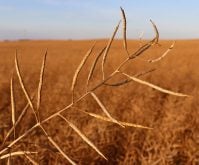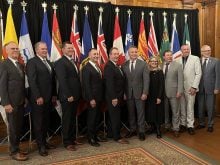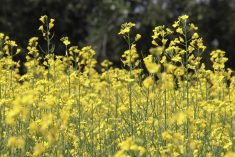Reuters – The U.S. Department of Agriculture is proposing regulations to prevent meat companies from retaliating against livestock and poultry farmers who speak out on practices such as price-fixing.
The USDA also said it would work with state attorneys general to investigate anticompetitive practices in the agricultural sector that contribute to inflation.
The moves aim to increase competition in the highly concentrated meat industry as part of a broader effort by the Biden administration.
Read Also

KAP flags risky trade for Manitoba farmers
Tariffs, market access uncertainty, trade diversification and export infrastructure top the agenda at Keystone Agricultural Producers (KAP) annual meeting.
The USDA said its new rule would prohibit meat companies from retaliating against farmers and ranchers who take part in “lawful communications” and whistle blowing on price-fixing or who participate in associations. It would also seek to protect farmers who may be at a higher risk for mistreatment because of their race, gender, sexuality or religion, the agency said.
The rule would revise regulations under the Packers and Stockyards Act, a century-old law meant to protect farmers from unfair market practices.
It would identify “unlawfully deceptive practices” that violate the act, including those related to the formation and termination of contracts between farmers and meat companies, the USDA said.
In May, the USDA proposed another rule that would require poultry companies to be more transparent with contract chicken growers. The rules aim to improve on previous USDA efforts to protect farmers.














